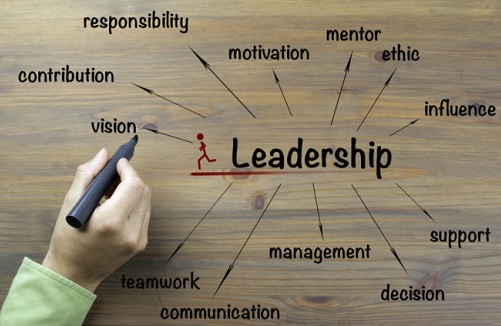Top 10 Leadership Skills – Definitions and Examples in 2024
Leadership abilities are a requirement for anyone hoping to advance to a management position or prove their worth while dealing with authorities.
We have advice on anything from the top 10 leadership interview questions you’re likely to face to advice on the qualities good leadership demands and why it matters.
Leadership Skills: What Are They?
Leadership abilities are among a variety of soft skills needed to succeed in many jobs, which are aptitudes that cannot be proven just by documentation or credentials.
Leadership skills, which are non-technical in nature, are exactly what they sound like: they are the abilities needed to be an effective leader, whether it be in the capacity of a team lead, manager, or someone in a more senior role.
Leadership talents, in contrast to industry-specific skills, are completely transferrable. These soft skills aren’t based on a measurable component of a specific profession.
Since leadership is a skill that applies to many fields and disciplines and is more tied to people than it is to the role itself, it is a universal competency.
Demonstrating leadership abilities is crucial for applicants who want to move into areas that are more internally focused or management-based. In a professional setting, personality, initiative, and engagement are just as significant as specific skills.
A candidate who can show strong leadership abilities has an advantage over the competition and demonstrates to potential employers—or current ones—how likely they are to succeed in the long run.
While qualifications may come and go, success in virtually any field continually depends on the capacity to lead well.
-
Providing Inspiration
A leader must inspire people around them to work more, go the additional mile, and perform better in order to be successful.
This kind of motivation goes beyond merely giving verbal praise; it can also involve giving team members concrete rewards for their work through praise, increased accountability, and even physical prizes. Improved autonomy and productive work are essential to keeping people motivated.
-
Interaction
Leadership requires excellent communication abilities. A key component of effective leadership is being willing to collaborate with staff members to discuss problems, find solutions, and set goals. A leader must also preside over team meetings, make compelling presentations, and maintain good client relations.
-
Goodwill
In any company, positivity may give employees the extra support they require when things go tough. Positive leadership traits include the capacity to effectively manage stress and conflict, as well as having excellent empathy and friendliness abilities.
-
Assignment
A strong leader is aware that the key to completing tasks successfully is to delegate work rather than taking it on themselves. Effective delegation of tasks when appropriate shows a leader’s capacity to recognize the advantages and disadvantages of their team members. To make sure that the work is finished as a team rather than in separate, solitary segments, they will use expectations, performance, and resources.
-
Originality
The ideal course of action isn’t always obvious while trying to come up with the proper solutions or choices. A leader isn’t scared to take the less-traveled route, which is why it’s critical for them to be creative in their solutions.
- Why Are Leadership Qualities Important?
- Employers surely look for leadership skills, but why is it so critical?
Leadership qualities indicate possibility for advancement. It is expected that some level of management will be engaged in any person’s upward mobility within a company or industry. The selection criteria for such higher-level positions will go beyond a candidate’s official education or area of expertise, especially in the most cutthroat industries.
An applicant’s ability to lead makes them stand out. Every applicant will have their soft skills evaluated by recruiters, and one of the most important ones to exhibit is leadership.
A new manager might be capable and knowledgeable enough to create good work and uphold high standards, but they might lack the leadership abilities required to motivate others to follow in their footsteps.
Leadership abilities are advantageous to the overall performance of the business. Leadership abilities are important in almost any field, whether you’re a doctor, engineer, mechanic, or office worker.
Beyond technical expertise, they form the foundation for productive working and collaboration. Long-term, strong leadership can help businesses greatly.
Everyone is impacted by leadership abilities. It is essential for managers and team leaders to possess strong leadership qualities for a workplace to be productive, stable, and healthy.
In the modern workplace, working in collaboration with others is just as important as getting the task done.
This includes everything from understanding others’ perspectives and handling disagreements to developing strong teams and working relationships.
The Top 10 Leadership Qualities
What are the most crucial abilities a leader must possess?
-
Providing Inspiration
A leader must inspire people around them to work more, go the additional mile, and perform better in order to be successful. This kind of motivation goes beyond merely giving verbal praise; it can also involve giving team members concrete rewards for their work through praise, increased accountability, and even physical prizes. Improved autonomy and productive work are essential to keeping people motivated.
-
Interaction
Leadership requires excellent communication abilities. A key component of effective leadership is being willing to collaborate with staff members to discuss problems, find solutions, and set goals. A leader must also preside over team meetings, make compelling presentations, and maintain good client relations.
-
Goodwill
In any company, positivity may give employees the extra support they require when things go tough. Positive leadership traits include the capacity to effectively manage stress and conflict, as well as having excellent empathy and friendliness abilities.
-
Assignment
A strong leader is aware that the key to completing tasks successfully is to delegate work rather than taking it on themselves. Effective delegation of tasks when appropriate shows a leader’s capacity to recognize the advantages and disadvantages of their team members. To make sure that the work is finished as a team rather than in separate, solitary segments, they will use expectations, performance, and resources.
-
Originality
The ideal course of action isn’t always obvious while trying to come up with the proper solutions or choices. A leader isn’t scared to take the less-traveled route, which is why it’s critical for them to be creative in their solutions.





